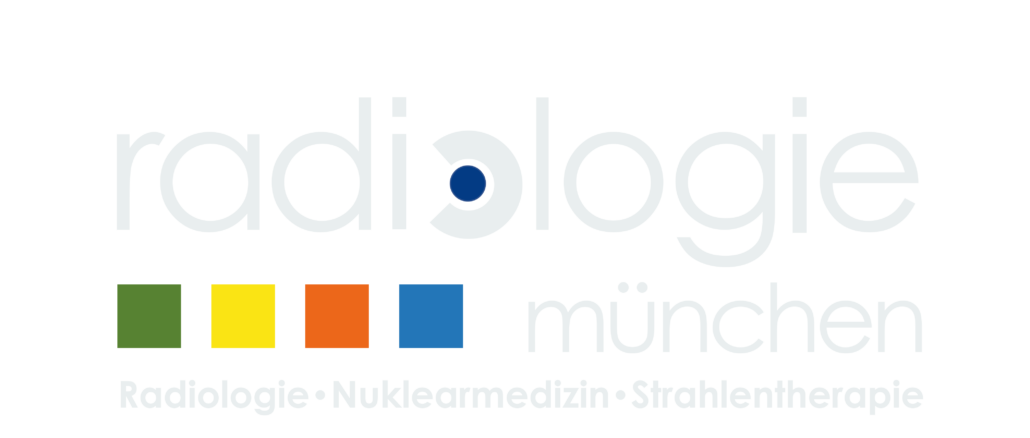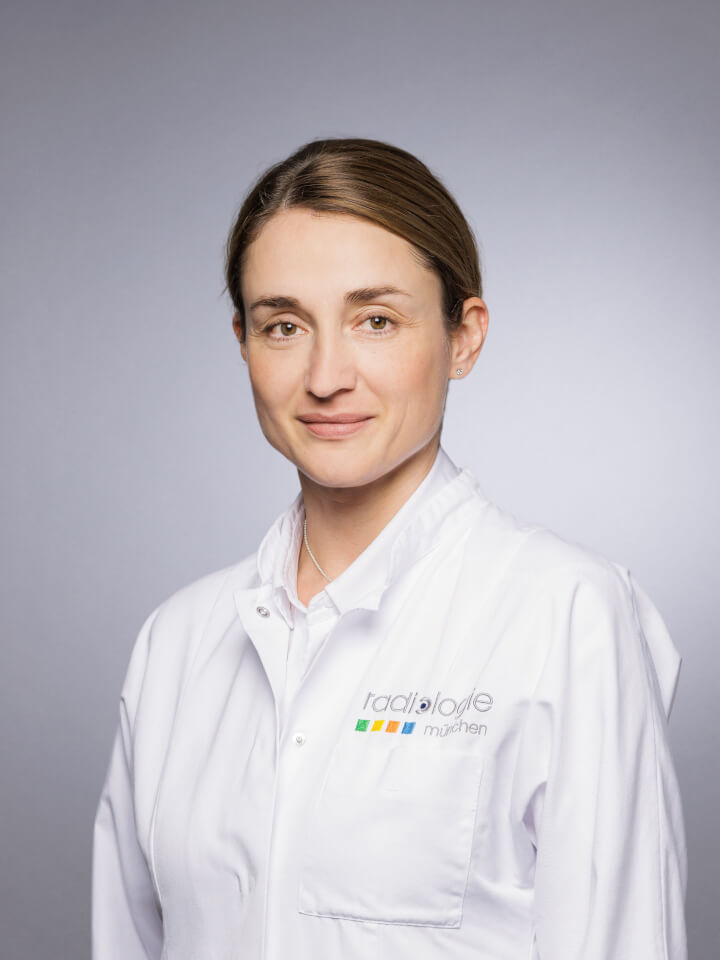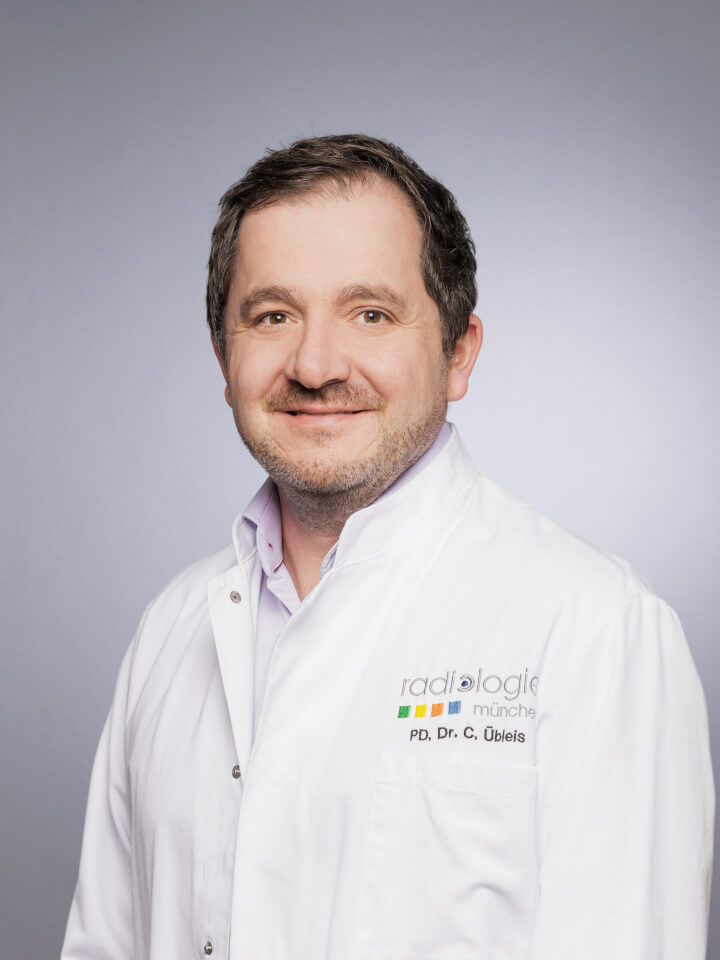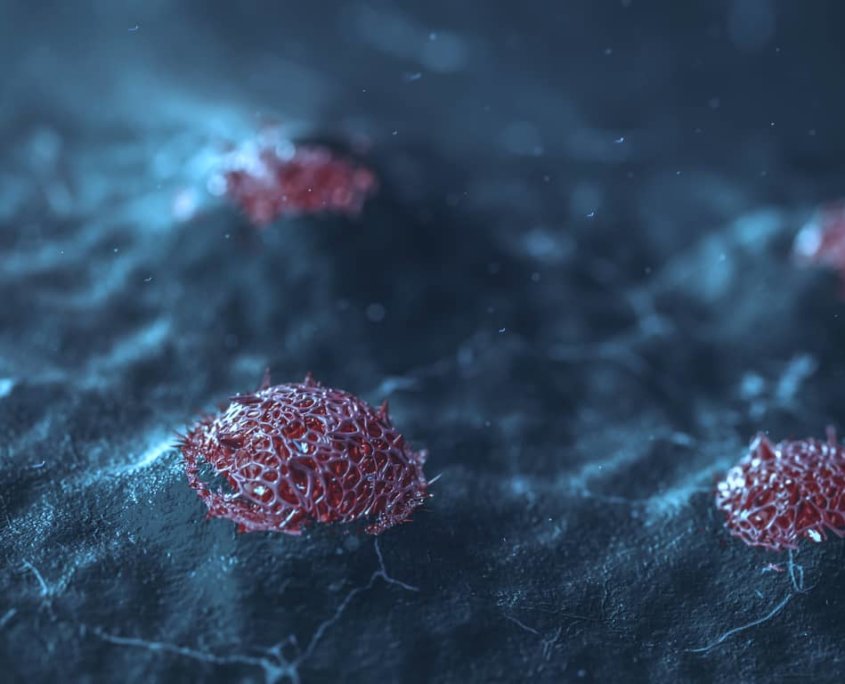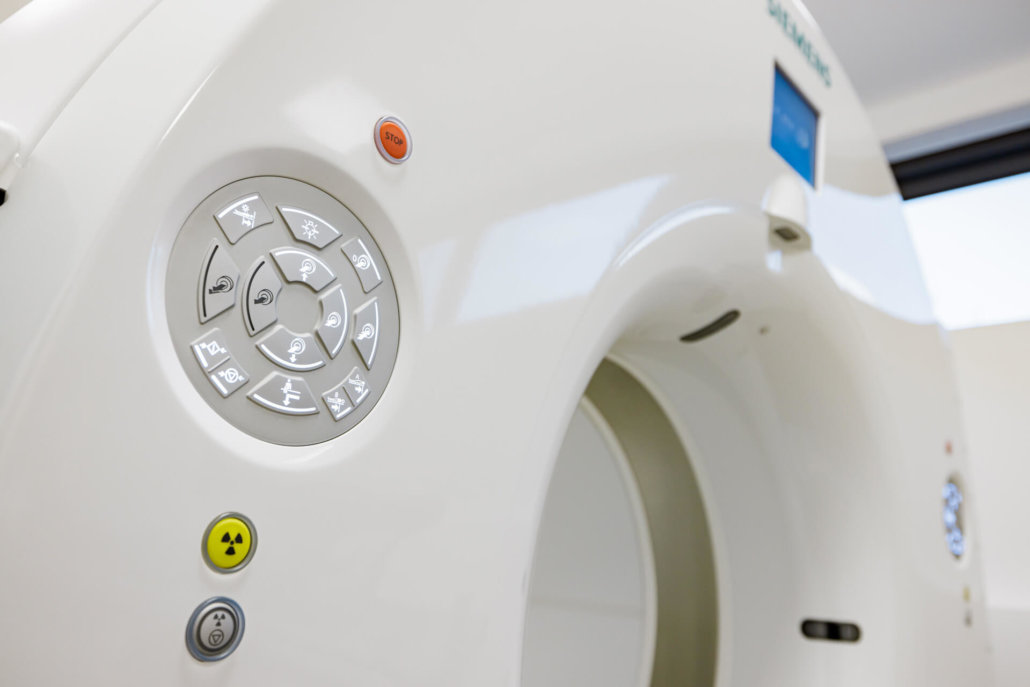PET-CT examination with F18-PSMA (PSMA PET-CT) is useful in many patients with prostate cancer. Below we have listed the most important indications for PSMA PET-CT (according to the 2017 European Association of Nuclear Medicine EANM guideline). Based on various studies, it has been proven that PET-CT using the low-level radioactive substance F18-PSMA(prostatespecific membrane antigen) is one of the most advanced diagnostic options in cases of prostate cancer.
Where can you have a PSMA PET-CT performed in Munich?
Prostate cancers are among the most common cancers in men. Definite detection, even in the presence of conflicting or negative prior findings, is provided by means of PSMA PET/CT. Our team of specialists in Großhadern, right next to the U-Bahn Klinikum Großhadern, will be happy to discuss the examination and procedure with you and find the most suitable date for your examination.
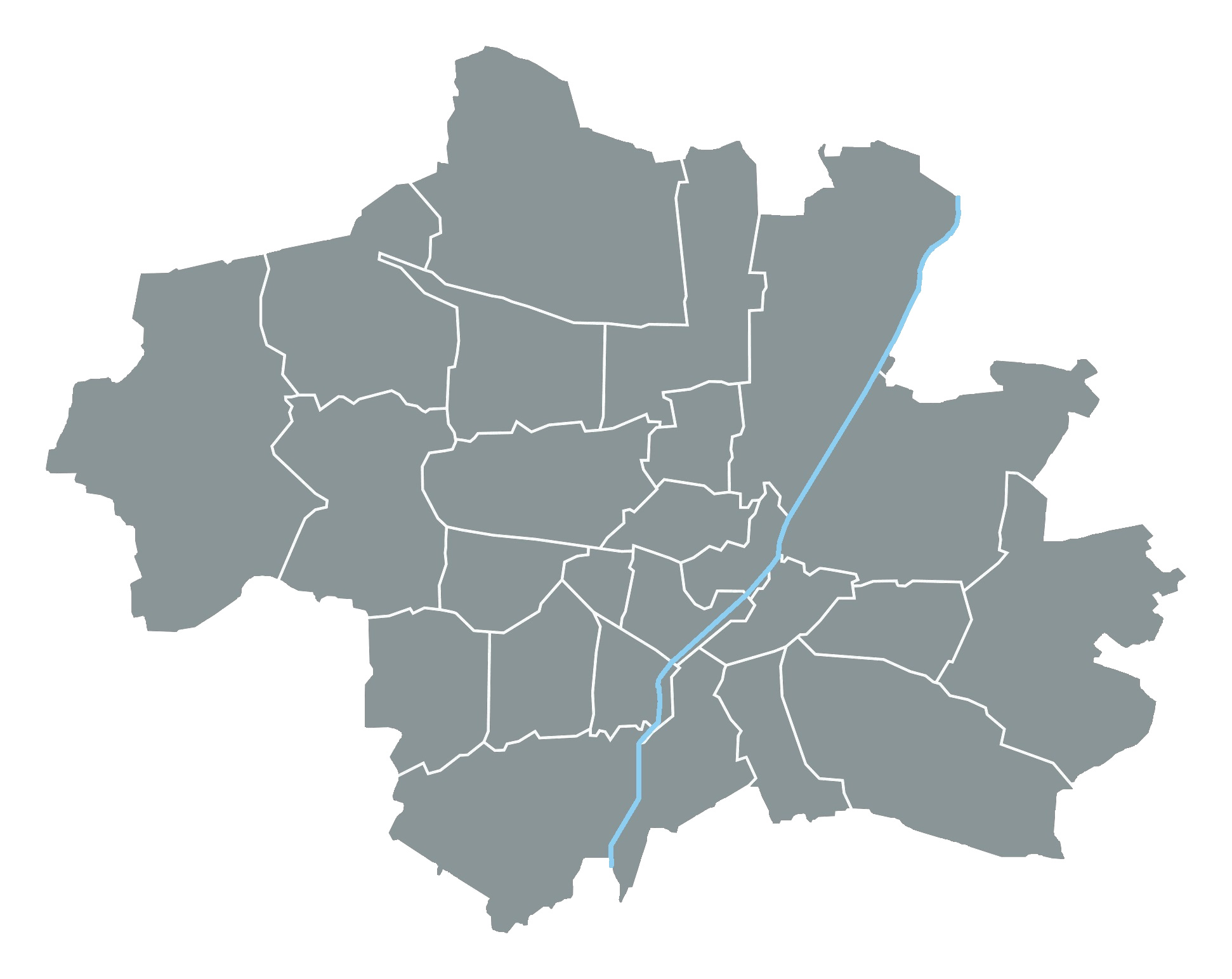
Your contact person for PET-CT
Feel free to contact us directly through any of the following channels! You can contact us by telephone during the practice hours of our location at Max-Lebsche-Platz in Munich Großhadern ( Mon-Fri from 8 a.m. to 6 p.m.) on 0049 89 2121 96 535.
Please feel free to use our registration forms, which you can send to us by e-mail to petct@radiologie-muenchen.de or by letter.
For which indication is the F18-PSMA PET-CT useful?
1. patients with suspected prostate cancer recurrence (increase in PSA value).
The particular advantage of the procedure is the ability to detect the entire spectrum of tumor disease (prostate findings, lymph node locations, distant metastasis) in a single examination. In particular, the evaluation of the lymph node stations, which is only insufficiently possible with CT or MRI, can be performed here with the greatest possible accuracy.
2. primary staging of high-risk disease before planning surgery or radiotherapy – high-risk patients (Gleason score ≥7b, PSA >20 ng/mL, clinical stage T2c – 3a) are more likely to have lymph node and/or bone metastases. Here, studies showed superiority of PSMA PET-CT compared with CT, MRI, and bone scintigraphy.
3. patients with advanced prostate carcinoma under drug therapy for therapy control.
While PSA values show the general therapy outcome, PET-CT examination for the individual, local metastasis can show the response or non-response of therapy and thus support the possibility of initiating local therapy (e.g., irradiation of a bone metastasis).
4. staging before and during internal Lu-177-PSMA therapy.
5. PSMA PET-CT guided biopsy after negative biopsy in patients with high clinical suspicion.
How does an F18 PSMA PET CT work?
F18-PSMA is a so-called nuclear medicine tracer. Tracers are highly diluted and radioactively labeled substances that are found in positron emission tomography (PET) and can be assigned anatomically in the body. The tracer molecules always consist of two different but tightly bound substances. On the one hand, the weak radioactivity, which is used exclusively to enable the physician to determine the distribution of the tracer in the body (in this case it is the nuclide F18).
And on the other hand the actual biochemically “active” substance in the body, which represents a certain metabolic step or binds to certain cells. In this case, it is the prostate-specific membrane antigen, which binds highly selectively to glandular tissue of the prostate (and in particular to tumors of the prostate and their metastases).
Classical PET-CT diagnostics further developed
To date, PET-CT diagnostics have primarily used the tracer F18-choline to detect prostate cancer recurrence. As far as advanced prostate cancer recurrence was present and PSA levels were above 1.0 ng%, a sufficiently high detection rate for the recurrent tumor was possible.
In most clinical situations – particularly with the very early use of PSA level determination – laboratory evidence of recurrence was already present at very low PSA levels. This means that in particular in the clinically important PSA ranges below 1.0 ng%, here especially in the range below 0.5 ng%, only a low detection rate or no corresponding tumor detection was possible.
New tracer simplifies diagnosis
The corresponding search for more efficient tracers has led to the introduction of gallium-68-PSMA: According to available studies, in patients with prostate cancer recurrence with a PSA level of 0.2 to 0.5 ng% and 0.5 to 1.0 ng%, a detection rate of approximately 58% and 73%, respectively, is given. This makes it possible to differentiate between local recurrence in the surgical area, lymph node metastases or distant metastases, which is important for differential therapy.
In the latest development, the PSMA can now also be bound to the F18. With similar binding behavior in the body compared to gallium-68-PSMA, it has a much longer half-life, which makes it much easier to perform the study.
What should be considered before PSMA PET-CT?
For the best possible image quality, it is essential that you are fasting for approximately 8 hours prior to the examination. You can drink unsweetened liquids such as tea or mineral water. For diabetics, the examination can still be performed if certain rules are followed, which we will be happy to clarify with your referring physician in advance.
Please bring your available preliminary examinations, examination images on CD and reports of findings. In addition, the following laboratory values are required in as up-to-date a form as possible:
Any additional medication required during the examination will impair your fitness to drive . After the examination, there is therefore generally no insurance cover at the wheel! Therefore, we advise having a companion present when a PSMA PET-CT is scheduled. There are plenty of parking spaces in front of our practice in Großhadern.
IMPORTANT: If you are unable to come to the exam, please let us know by 9am the day before the exam. Otherwise, we will have to charge you extra for the radioactive examination agent ordered and produced individually for you. The reason for this is that the drug can only be used on your premises – the cost of a missed examination will then amount to approximately €200.
What is the procedure for a PSMA PET-CT?
The preparation
After entering the examination room, our specialists will discuss the further procedure with you and measure your blood glucose level. Subsequently, we place an access via one of the arm veins. For the best possible results in PSMA PET-CT, we give different means and medications:
Particularly with regard to the contrast medium, we address any intolerances in advance – if a contrast medium intolerance is known, we need to know about it. Furthermore, current values of thyroid and kidney function (TSH and creatinine) are necessary.
The investigation
After the administration of the low-level radioactive examination substance, you should rest for at least 15-20 minutes. For this we have special recliners or couches. The examination begins approx. 45-70 minutes after administration of the examination substance. Just before that, you can change in a lockable locker room. You do not need to undress for the examination.
Larger metallic objects (e.g. belt buckles and underwire bra) must be removed. Please ask again about piercings when you register. The exposure is then performed while the patient is lying down and takes about 20 – 30 minutes.
What results can you expect from PSMA PET-CT?
A PSMA PET-CT examination generates very large amounts of data. On site, we free them from disturbing artifacts or other obstacles in the best possible way through various optimizations within our technology. Afterwards – about 30 minutes after the end of the examination – the examination images are available.
During this time you will have to be patient for a little while in the waiting room. In addition to the pure quality inspection, our specialists also classify the findings. This allows us to provide you with an initial assessment. The comprehensive evaluation with all details then usually takes a few days.
How do you get your results?
In recent years, it has proven to be a very good measure to provide each patient with the images of the examination on an appropriate DVD. They are prepared immediately after the examination and you can take them with you. But we at Radiologie München are of course keeping up with the times – so in the future you will also be able to download the data via our patient platform. You will receive the necessary access data from our team on site directly after the examination.
The completed findings report is provided directly to your attending physician. You can also receive this report – currently still as a copy by mail, but in the future also via the already mentioned patient platfom. If you have any questions about this, we will be happy to clarify them for you.
Who bears the costs for a PSMA PET-CT?
Diagnosis and staging of various tumor diseases are among the main fields of PSMA PET/CT. In the case of prostate cancer, the statutory health insurance (GKV) covers the costs. Incidentally, the same also applies to lung cancer tumors, certain types of lymph node cancer and tumors in the ear, nose and throat area as well as the larynx.
We check whether there is a clearly reimbursable diagnosis for all our patients with health insurance when they register for the examination. If this is not the case, but the examination is deemed necessary from a medical point of view by your treating physicians, an individual application for cost coverage must be submitted to your health insurance company. We will be happy to assist you with the application process.
We usually receive a quick response from your health insurance company here. If the health insurance company does not cover the costs of the examination, there is still the option of having the examination performed as an individual health service (IGeL). We will be happy to provide you with a cost estimate for this. Private health insurances usually cover the costs for medically justified and necessary questions. But again, you can make an advance request to your insurance company.
